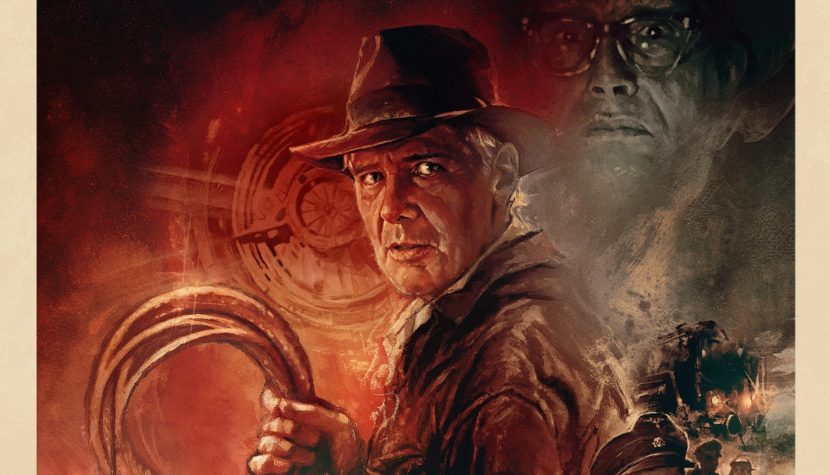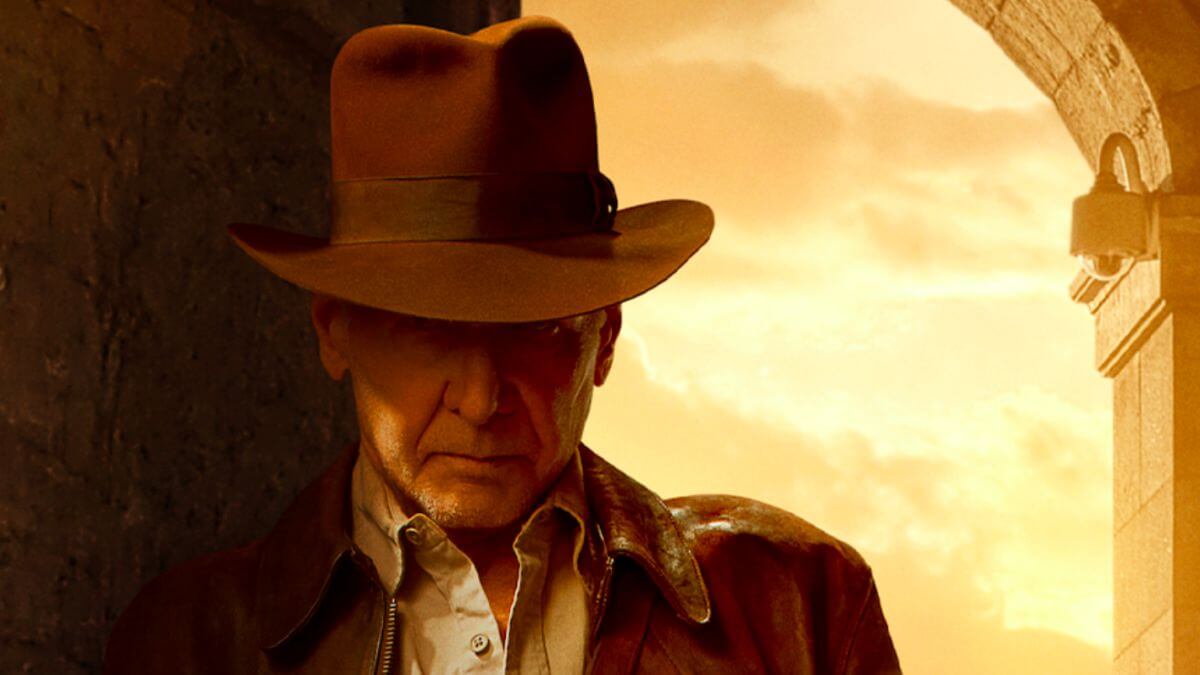INDIANA JONES AND THE DIAL OF DESTINY. Back to the past [REVIEW]

Huge parades pass through the streets of New York because man has finally landed on the moon. Staring proudly into space seems more appealing than digging up artifacts from thousands of years ago. Nearing retirement, Indiana Jones (Harrison Ford) divides his days between morning archaeological lectures and afternoon, embarrassing emptying of bottles of Ballantines. But you won’t believe it. It is enough for Helena (Phoebe Waller-Bridge) – the daughter of an old friend – to ask for help and Indiana gets involved in another adventure. In the air, on the ground and under water. For life and death. This time, as always, it is a matter of no small importance. Of course, not only Helena, but also Jürgen Voller (Mads Mikkelsen), a scientist with a gloomy Nazi past, dreams of obtaining the mysterious invention of Archimedes, which allows time travel. There is no time to lose.
Old German opponents, proven working story blocks and a handful of new problems for the aging Indiana Jones. However, before the director, James Mangold, discusses the existential dilemmas of the legendary archaeologist with us, he will recall the times of his greatest glory. The film’s opening 20-minute night sequence, in which Jones performs a noose and a western-style hopping over train cars, is a stunt, staging and cinematography stunt. The de-aged Harrison Ford hardly dazzles at all. Not only does he keep his natural facial expressions in close-ups, but also while running or in the iconic right straights. Especially then, our old friend returns in the greatest glory.

James Mangold, taught by the mistakes of his colleagues (the unfortunate last Star Wars trilogy), does not take shortcuts, preying on the simplest sense of nostalgia. The feisty, adventurous atmosphere of Indiana Jones is evoked by situational clichés and insistent winks at fans who know the previous films by heart. The creators recreate the atmosphere at the level of implementation: the pace of editing, lighting or camera movement. Mangold takes into account that the main character is already someone a little different. Jones has experienced more than one loss, and physical fatigue and years on the back of his neck are making themselves felt more and more often. The changeability of the character works in favor of the dramaturgy, but at its core it is still the same film world. It can only be told in one language. Mangold reaches for it with all his craftsmanship and generous production support from the Mickey Mouse studio.
Indiana Jones and the Dial of Destiny is a cinema of extraordinary scale and ambitions. Moments of downtime and more intimate moments can be counted on the fingers of one hand. Although “intimacy” can be a relative term, especially when there is a budget of 300 million dollars at stake. Against the background of the previous parts, Mangold’s film stands out with its intensity and the accumulation of extensive action sequences. Each subsequent location is a specific mess written out for many extras, several vehicles and countless empty magazines. Our characters are less defined by verbal scuffles, almost entirely by action and physical cunning. Even the most intricate plan must fail with the law of the fist and a stick of dynamite.

James Mangold throws us around the world with a light director’s hand, the twisted ethical backbone of Helen, who is unstable in her beliefs (is it all for money, fame or a greater good?) straightens up before our eyes and Indiana Jones proves herself not only as a mentor and teacher, but an actual participant in the exploration and needed “hands for work”. Only in a few situations does it feel far-fetched and awkward. Most often it is the unfortunate fate and justified necessity. Indiana Jones and the Dial of Destiny does not try to be an homage, a summary or a culmination. Because this hero doesn’t deserve it. Simply. “Each epoch must have its hero.” Helen rightly convinces an exhausted Jones that it’s not time to retire yet. It’s a really tempting promise for him and for us.

